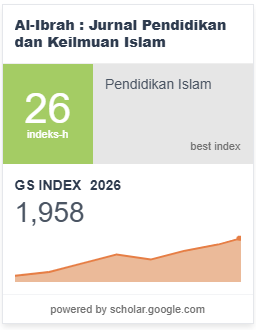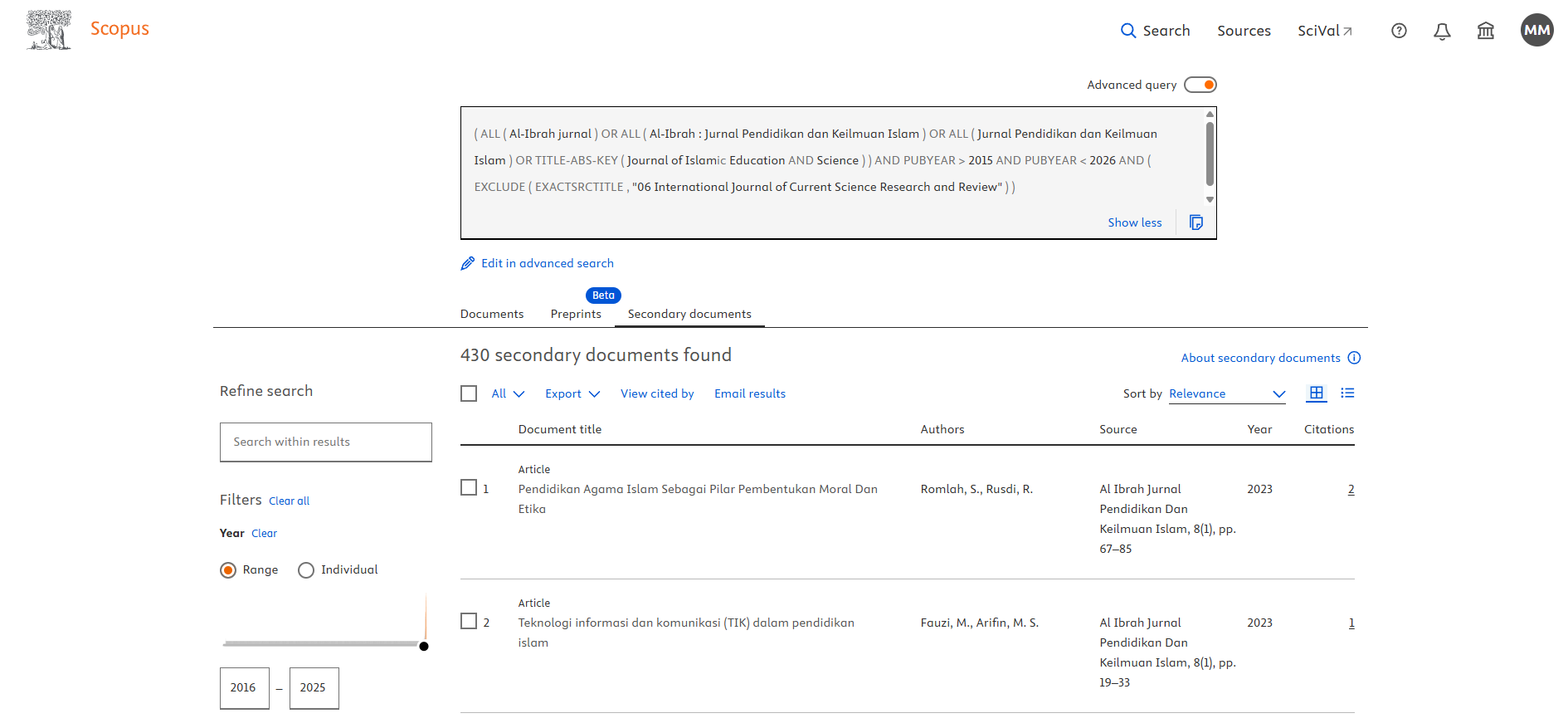PENDIDIKAN EMANSIPATORI DALAM PERSPEKTIF SAYYIDAH AISHAH
KONTRIBUSI WACANA GENDER ISLAM KONTEMPORER
DOI:
https://doi.org/10.61815/alibrah.v10i1.677Keywords:
Pedagogi Emansipatoris, Pendidikan Islam Inklusif Gender, Sayyidah AishahAbstract
This study investigates the emancipatory educational thought embodied by Sayyidah Aishah, a central female figure in the early intellectual history of Islam. The key question it seeks to answer is how Aishah’s role as a transmitter of prophetic knowledge and a critical interlocutor in religious discourse exemplifies a gender-inclusive model of Islamic education. Adopting a qualitative, library-based approach, the research draws on classical sources such as hadith compilations, biographical dictionaries, and tafsir literature, alongside contemporary theories of emancipatory pedagogy. Sayyidah Aishah is positioned not merely as a transmitter of prophetic knowledge but as an epistemic agent who actively challenged androcentric interpretations of Islamic teachings. Through thematic analysis, the study reveals Aishah’s unique contributions to the formation of Islamic jurisprudence and ethics, particularly in areas of gender equity, intellectual accountability, and moral reasoning. The findings suggest that her life and teachings offer a model of resistance to patriarchal constraints in religious education. Her legacy provides a framework for reimagining Islamic education as a space of liberation rather than confinement for Muslim women. Ultimately, the paper affirms that gender justice and Islamic piety are not mutually exclusive but deeply interconnected through historically grounded practices of knowledge transmission.
Downloads
Downloads
Published
How to Cite
Issue
Section
License
Copyright (c) 2025 Kurniyah, Alina Lestari Putri

This work is licensed under a Creative Commons Attribution-ShareAlike 4.0 International License.











